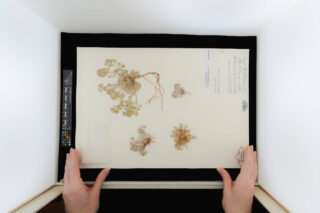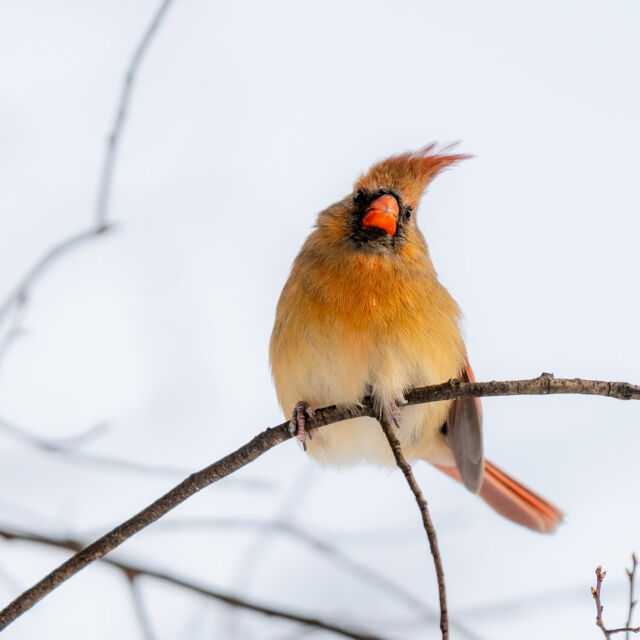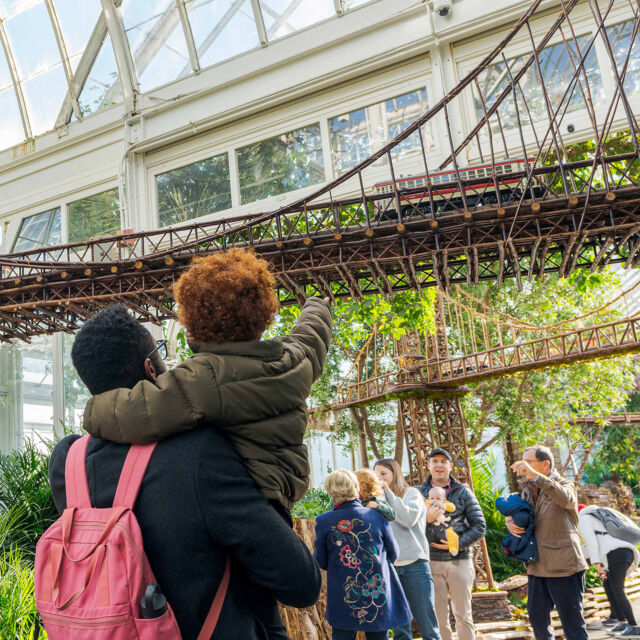NYBG Selected for Bezos Earth Fund’s AI Grand Challenge
Emily B. Sessa, Ph.D., is the Patricia K. Holmgren Director of the William and Lynda Steere Herbarium

NYBG has been selected for a grant from the Bezos Earth Fund’s AI for Climate and Nature Grand Challenge, which will scale innovative work at the intersection of artificial intelligence, conservation efforts, and biodiversity research. We are honored to have the opportunity to responsibly develop and scale real-world artificial intelligence (AI) solutions to tackle biodiversity loss and climate change.
Our project at NYBG will harness the power of cutting-edge, responsible AI to unlock the vast, underutilized data in herbarium collections. Herbaria are scientific collections of plant specimens that contain data about species’ distributions, traits, and environmental responses that are critical for conservation, restoration, ecology, and foundational biology. Herbaria are the major frontier for discovery of new plant species and for understanding already known and threatened species. Over the next few years, we will develop advanced vision-language models and computer vision tools to unlock the extraordinary amount of data contained in herbarium specimens, at a scale and rate that would be impossible through manual methods. We will dramatically increase the quantity, quality, and availability of plant data.
Using AI to build scalable, open-access tools will allow us to accelerate biodiversity discovery, support conservation actions for species and geographic areas, and inform environmental policy and decision-making faster and more effectively.
Our goals are:
- To accelerate threat detection and improve habitat assessments for conservation and other environmental practitioners, particularly those advancing International Union for Conservation of Nature (IUCN) Red List assessments, Key Biodiversity Areas (KBAs), and Important Plant Areas (IPAs);
- To enable policymakers to make timely, evidence-based recommendations on land use, protected species and areas, and conservation investment; and
- To inspire new, high-quality studies grounded in robust scientific evidence that can open novel pathways for innovative ecological, evolutionary, and climate response studies.
Embracing AI aligns with NYBG’s mission to advance botanical science and environmental stewardship. By integrating AI into research and conservation practices, NYBG enhances its capacity to address global challenges, from climate change to food security. These technologies not only accelerate scientific discovery but also democratize data access, engaging a broader community in the collective effort to understand and protect plant and fungal diversity. By using AI responsibly and efficiently, we can enhance and accelerate work on species identification, climate mitigation, biodiversity conservation, and collections-based discovery.
SUBSCRIBE
Enter your email address to subscribe to this blog and receive updates on new posts.











